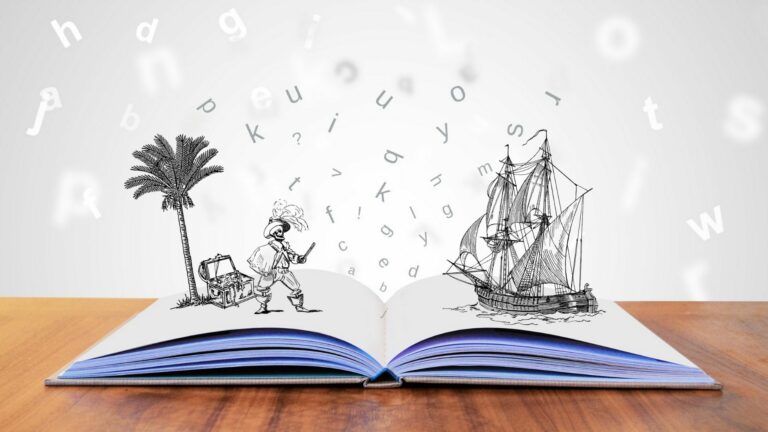The advent of artificial intelligence (AI) has revolutionized countless industries, and the realm of creative writing is no exception. AI models like ChatGPT have emerged as innovative tools capable of assisting writers in overcoming the daunting challenge of the blank page by generating creative writing prompts. These prompts serve as launching pads, offering an initial idea from which a story or piece of content can spring forth.
By leveraging the capabilities of AI for prompt engineering, individuals can tap into an endless well of creativity to refine their writing skills and streamline their writing process. Through sophisticated natural language processing, AI can dissect the nature of effective storytelling to produce prompts that inspire innovation and breathe life into character creation and plot development.
Key Takeaways
- AI offers innovative solutions for generating creative writing prompts that help tackle writer’s block.
- Developing effective writing prompts through AI enhances the creative writing process and sparks innovation.
- Prompt engineering with AI models addresses practical applications, benefits, and ethical considerations in creative writing.
Fundamentals of AI in Creative Writing
AI has introduced tools in creative writing that transform how writers approach language and content generation. These tools are grounded in natural language processing and machine learning advancements.
The Evolution of AI Writing Assistants
AI writing assistants have progressed from simple grammar checkers to sophisticated platforms capable of generating narratives and themes. Initially, these tools focused on correcting syntax and spelling, but now they have evolved to understand context and generate creative content. As artificial intelligence tools become more advanced, they contribute to various aspects of content creation, from initial topic conceptualization to the final touches of language design.
Understanding Natural Language Processing
Natural language processing (NLP) is at the core of these AI tools, enabling them to interpret human language. A few key components of NLP include:
- Syntax Analysis: Understanding the structure of language.
- Semantic Analysis: Discerning meaning within the text.
- Contextual Relevance: Grasping the significance of context in communication.
NLP empowers AI to comprehend written material and generate it in a way that is engaging for readers.
The Role of Machine Learning in Creativity
Machine learning (ML) enhances the creative abilities of AI by teaching systems to recognize patterns and generate content that resonates with readers. Within ML, algorithms process large datasets to identify common themes and topics, which can then shape new, original compositions. Machine learning facilitates the AI’s understanding of:
- Trends in language and prose styles.
- Popular themes and topics within specific genres.
This processing ability allows AI to suggest or create content with a significant degree of design and thematic relevance.
Crafting Effective Writing Prompts with AI
When incorporating artificial intelligence into writing, crafting effective prompts is crucial. They steer the AI’s direction and enable generating engaging and creative content.
Designing Prompts for Engagement
- Intent Focus: Writers must ensure prompts have a clear intent. This focus guides the AI to generate content that aligns with the desired outcome.
- Idea Generation: The effectiveness of a prompt also relies on its ability to inspire creative ideas, leading to compelling writing.
Efficient prompts incite enthusiasm and foster interaction, blending the writer’s vision and the AI’s capabilities.
Customization and Personal Touch
- Audience Tailoring: Effective prompts are often customized to resonate with the intended audience, making the resultant writing feel personal and relevant.
- Unique Flair: The writer ensures that the AI’s output reflects a unique style and voice by injecting personal touches into prompts.
Customizing prompts adds an individualized dimension to the content, catering to specific tastes and preferences.
Prompt Types and Their Uses
- Narrative Elements: Prompts can specify elements like characters and structure to aid in building a compelling story.
- Creative Exploration: Some prompts encourage exploration of themes or settings, fostering innovation in creative writing.
Writers use varied prompt types to serve different functions, from structuring narratives to sparking creative freedom.
Practical Applications and Benefits
Artificial Intelligence (AI) has revolutionized the way individuals approach creative writing. By leveraging AI prompt generators, they can harness their creativity, navigate through creative blocks, and enhance their educational endeavors.
Enhancing Creativity and Innovation
AI prompt generators serve as a tool for writers and artists to explore a vast array of ideas. These generators stimulate creative thinking and innovation by offering unique prompts encouraging users to experiment with different themes and styles.
- Brainstorming: They facilitate a brainstorming process that can lead to unexpected and novel storylines or concepts.
- Cross-disciplinary Inspiration: Users can generate prompts that combine elements from various disciplines, sparking interdisciplinary creativity.
Overcoming Creative Blocks
Creative blocks are a common hurdle for many creatives. AI prompt generators can be particularly useful:
- Inspiration: When writers face the dreaded blank page, AI-generated prompts can provide the inspiration needed to begin writing.
- Productivity: These prompts can improve productivity by providing a continuous flow of ideas, thus keeping the creative momentum.
AI Prompt Generators in Education and Training
In the realms of education and training, AI prompt generators have become an invaluable asset:
- Teaching Resource: Educators employ these tools to enhance teaching methodologies, offering students innovative ways to engage with course material.
- Skill Development: They aid in developing problem-solving and critical thinking skills by presenting complex prompts that require thoughtful analysis.
| Sector | Benefits of AI Prompt Generators |
|---|---|
| Creative Writing | Fosters new genres and writing styles |
| Academic Research | Assists in formulating research questions |
| Art and Design | Encourages new forms of artistic expression |
Addressing Challenges and Ethical Considerations
With AI’s ascent in creative writing, its users face pressing challenges and must consider the ethical implications of leveraging such dynamic AI builders. It is crucial to address the limitations and biases of AI, uphold best practices for responsible use, and diligently prepare for the future intertwining of AI and writing skills.
Navigating AI Limitations and Biases
AI language models are not infallible; they embody inherent limitations and biases that can impact conversation quality and the culture of creativity they intend to enhance. Identifying and mitigating these biases requires a multi-faceted approach.
- Recognition: Users must acknowledge AI’s potential to replicate existing prejudices found in training data.
- Oversight: Continuous monitoring can help catch and correct bias in AI outputs.
Best Practices for Responsible AI Use
The responsible use of AI in writing signifies respecting ethical boundaries and enhancing creative content production without supplanting human creativity.
- Attribution: Always credit AI-assisted writing to maintain transparency.
- Complementation: Use AI to empower, not replace, human writers, ensuring the technology supports rather than dominates the creative process.
Preparing for the Future of AI and Writing
Anticipating the future of AI in writing calls for adaptive strategies that both harness its potential and safeguard against its pitfalls.
- Education: Writers must have the skills to work symbiotically with AI.
- Integrity: Upholding ethical standards will be instrumental as AI becomes more prevalent in content creation.
By addressing these critical areas, stakeholders in the world of creative writing can foster a responsible and innovative environment that bolsters both human and artificial contributors.
Frequently Asked Questions
AI’s advancement has paved the way for innovative tools and techniques that enhance creativity in writing. These FAQs will explore how AI assists in crafting unique writing prompts, introduces robust tools, tailors content to writing styles, and more.
How can AI help in generating creative writing prompts?
AI can analyze vast amounts of text and linguistic patterns, enabling it to generate diverse and intriguing writing prompts that ignite creativity. It can also apply machine learning to understand common storytelling structures, offering prompts that inspire novel ideas.
What tools are available for creating writing prompts with AI?
Various online platforms and software have emerged, such as OpenAI’s GPT-3, that writers can utilize to create writing prompts. These tools often come with user-friendly interfaces and customizable settings to help generate prompts across various themes and complexities.
Can AI-based prompt generators accommodate specific genres or styles?
Many AI prompt generators are designed to produce content tailored to specific genres or writing styles. Users can often input genre, style, and tone parameters, which the AI uses to craft prompts that align with those preferences.
Is it possible to tailor AI-generated prompts to individual writers’ needs?
Absolutely. AI writing assistants have the flexibility to be programmed with specific directives, allowing them to produce prompts that reflect individual writers’ requirements, interests, and creative goals.
Are there any AI prompt generators that can interpret visual inputs for writing inspiration?
There are AI tools that can interpret visual inputs and translate them into written content, which can serve as a source of inspiration for writers. Such prompt generators can analyze images and suggest narrative ideas or descriptive prompts.
How has artificial intelligence impacted the field of creative writing and prompt generation?
Artificial intelligence has significantly influenced creative writing by providing tools that assist writers in overcoming writer’s block and generating fresh ideas. These technologies have revolutionized prompt generation, making it more accessible, diverse, and tailored to writers’ needs.





